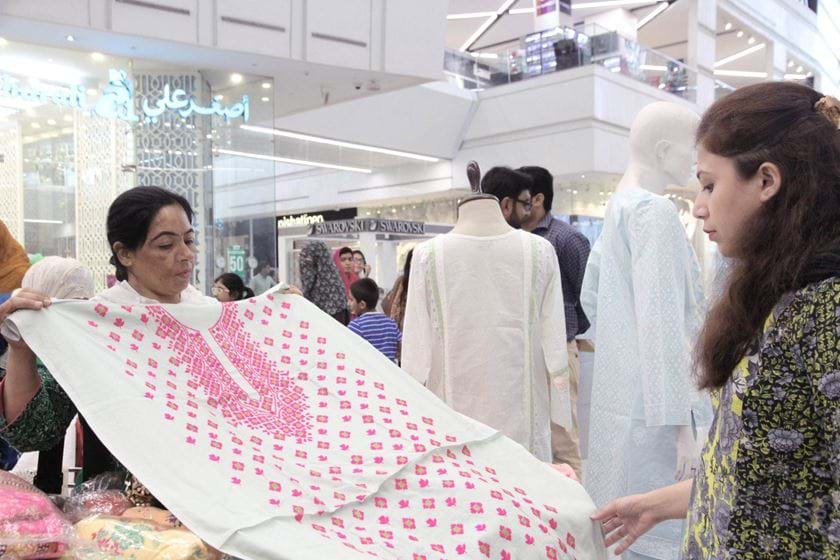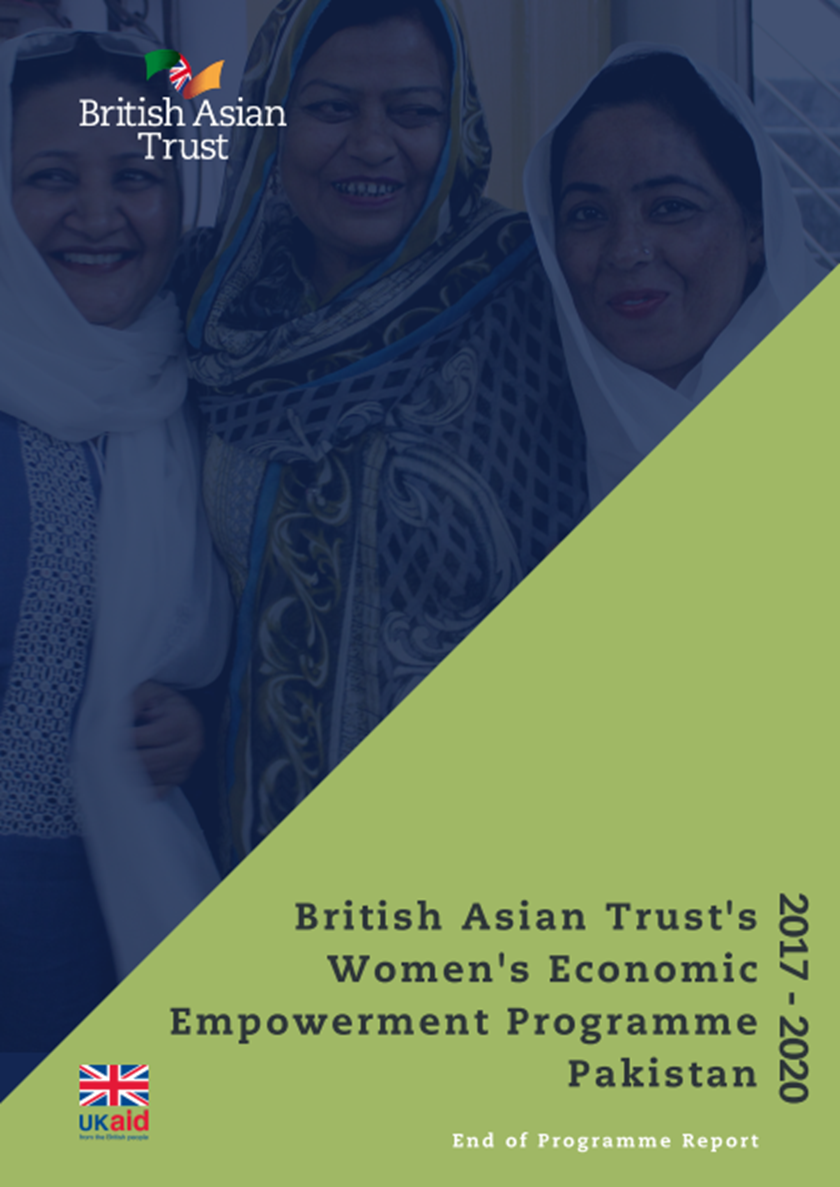Making way for Women’s Economic Empowerment in Pakistan
Investing in women’s economic empowerment is a critical step towards gender equality, poverty eradication and inclusive economic growth. According to UN Women, women’s economic empowerment includes “women’s ability to participate equally in existing markets; their access to and control over productive resources, access to decent work, control over their own time, lives and bodies”[1]. Yet it is estimated that at the current rate, the gender gap in economic opportunity will not close for another 257 years, with Pakistan ranking 151 out of 153 on the World Economic Forum’s 2020 Gender Gap Index, and scoring just 32.7% on Economic Participation and Opportunity for Women. If Pakistan aims to reduce gender gaps and achieve its development goals, investing in women’s economic empowerment is essential.
Women’s economic empowerment is a central belief of the British Asian Trust. Earlier this month, the British Asian Trust celebrated the close of its UK Aid funded Women’s Economic Empowerment programme 2017-2020, implemented in the Sindh and Punjab provinces of Pakistan. The Women’s Economic Empowerment Closing Event shared the accomplishments of the programme and key findings to inform future programmatic work.
The event was opened by Richard Hawkes, Chief Executive of the British Asian Trust and moderated by Kamyla Marvi, Pakistan Director at the British Asian Trust. Annabel Gerry, Development Director, Pakistan, from the Foreign, Commonwealth & Development Office spoke on the need to maintain focus on women’s economic empowerment and congratulated the achievements of the programme and the collaborative partnerships. The event was also joined by panellists from the six implementing partners, Akhuwat, Aman Foundation, Basic Needs Pakistan, Centre for Economic Research in Pakistan, Kaarvan Crafts Foundation and INJAZ Pakistan. As well as the programme management partner, AWF pvt. Ltd and the external programme evaluators from INTRAC.
Key Highlights
The programme findings marked significant achievements towards planned outcomes. This included enabling the placement of 10,425 women in formal employment or self-employment opportunities, which increased the earnings of 9,848 women. Overall, the programme has been successful in securing a 94-101% achievement rate against key targets, despite the changing contexts and conditions of the COVID-19 pandemic.
Furthermore, the engagement of women in economic activities promoted the normalisation of women working in their respective communities. The increased economic activity in these communities has boosted the morale of other working women and influenced their peers to have greater control over household resources, and to be consulted in decision-making.
The event also presented the opportunity for a panel discussion with the six implementing partners on ‘Developing Effective Strategies for Women’s Economic Empowerment’. This involved critical conversations on the various aspects of gender and empowerment, especially during the COVID-19 pandemic, in which we can see examples of economic intervention having a wider impact on women’s leadership in fields such as health and education.
The examples of increased female mobility and financial control exemplified through the Women’s Economic Empowerment programme, emphasises the need to continue supporting women’s financial independency in Pakistan and contribute to future endeavours in the sector. Pakistan still has a long way to go before successfully meeting targets in gender equality. Nevertheless, the achievements of the Women’s Economic Empowerment programme indicate that we are moving in the right direction.
[1] UN Women, Facts and Figures: Economic Empowerment, https://www.unwomen.org/en/what-we-do/economic-empowerment/factsand-figures, last visited 30 November 2020.
“It is brilliant when we have examples like this programme of showing what can work and how a difference can really be made”- Annabel Gerry, Development Director Pakistan, Foreign, Commonwealth & Development Office
“It is a great feeling that we have been a part of this team that has brought changes to the lives of 12,000 households”- Dr. Amjad Saqib, CEO, Akhuwat
By Kamyla Marvi
Pakistan Director, British Asian Trust
December 2020


